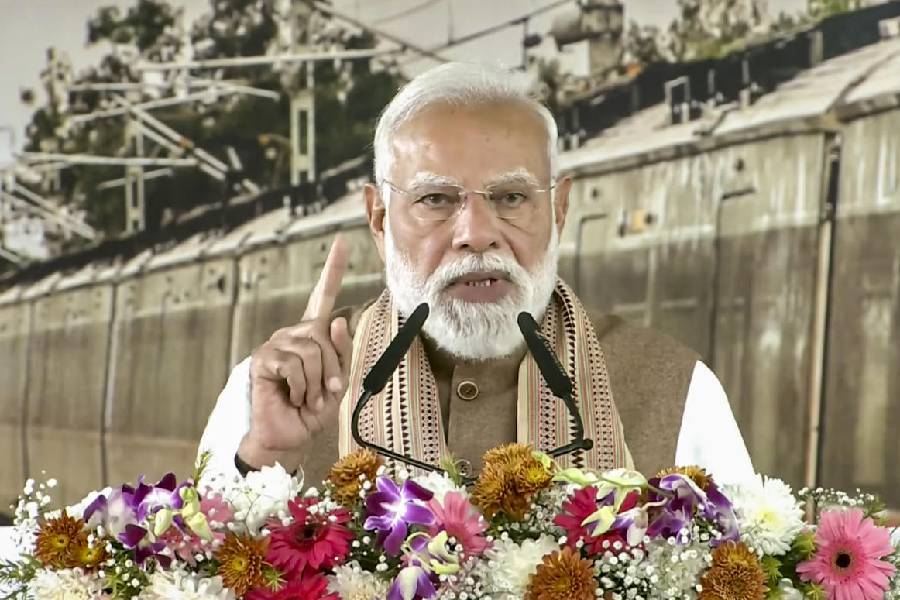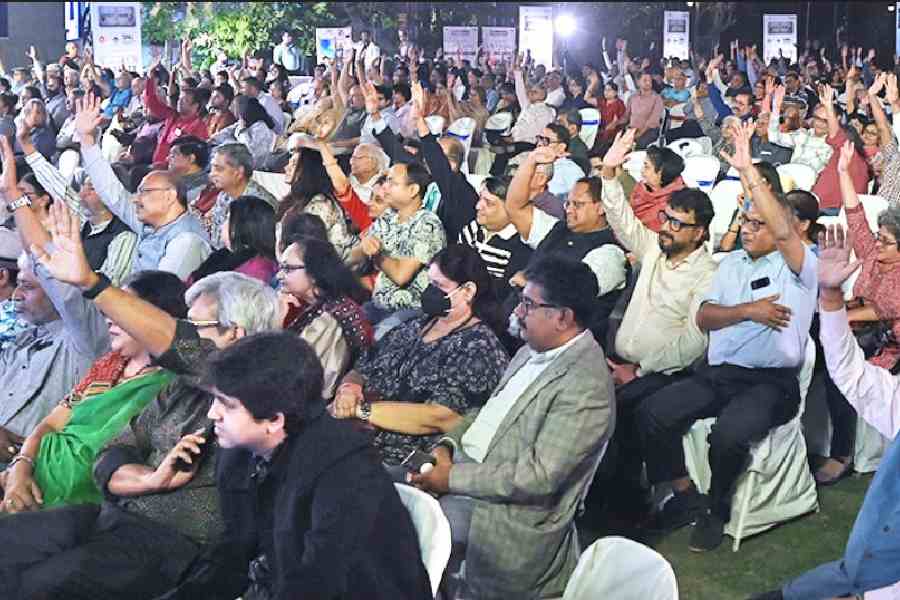One of the great casualties of this era has been the idea and the institution of the university. The modern university, as the sociologist, Patrick Geddes, pointed out, was a contract between the oral and the textual. It was a community, a knowledge system, and a common refuge for dissenting scholarship in the age of the mass society. Geddes went to the extent of arguing that no university was complete without its dissenting academics.
The university thus becomes an epistemic home for dissent. As a theory of knowledge, it is perpetually plural. As an institution, it is a trustee of defeated and dominant knowledge. The university then was a celebration of difference, where dialogue was its central mechanism. Sadly, like most enlightened scholarship, modernity has overplayed liberty and equality and ignored fraternity as a celebration of difference. Geddes felt the modern university must create this democracy of difference. Diversity was the real vision of the university. I was reminded of what the botanist, Wes Jackson, once told me. In a seminar, I claimed that America was a high-information society. He laughed and then said, “You claimed it had 166 varieties of apple which have been reduced to six.” He noted India had 150,000 varieties of rice. “Which do you think is a high-information society?” Jackson was making a crucial point. Information is now in bytes. It emphasizes speed. While cultures of knowledge sustain diversity, information anchors obsolescence. Knowledge as culture anchors diversity. The university has to reclaim its sense of diversity and dissent.
The current regime is illiterate culturally and ideologically about diversity. In a society that celebrates ‘300 Ramayanas’, only the Bharatiya Janata Party insists that Tulsidas’s is the official one. India’s diversity is reflected not only in its plant species but also in its style of storytelling. Retelling is an important part of any narrative. The official report on education chaired by the scientist, K. Kasturirangan, has no sense of culture. It sees culture as a mechanical prelude to education, not as an epistemic anchoring of it. The real challenge before the university is to challenge the monologic nature of the regime and its fondness for authoritarianism.
How does one do it, especially when dissent or difference is almost unpatriotic? One has to argue that diversity is both civilizational and epistemic. Dissent and multidimensionality go together, and it has to be playful. A dialogue of disciplines or of religions is something special. It is a ritual of initiation where a specialized self discovers another to rediscover itself. Regimes do not take multidisciplinarity seriously. They read it as a mechanical form of representation. For example, a project on development models would have six economists and one sociologist or a political scientist. The presence of the latter is ornamental. There is no dialogue of disciplines at an epistemic or cosmological level. The university has to create holistic, systemic models that can handle scale and complexity. It has to teach the values of uncertainty, complexity, and diversity to the regime. There can be no catchwords that the regime can pick up from a knowledge mall.
A friend of mine suggested an interesting exercise in this context. Our Constitution, he pointed out, was wise enough to realize that rights are futuristically incomplete. The Directive Principles of State Policy were introduced as wish lists, as dreams of a more practicable future. He suggested that academics and students should be invited to rewrite the Directive Principles every five years. The wish list then becomes a heuristic, providing new hypotheses for scholarship. Imagine a Constitution that dreams of sustaining soils, ecosystems and saves dying languages. The symbiosis between the Constitution and
the university would then be complete.
One realizes that such an agenda is not easy, especially as society becomes mediocre and authoritarian. The university must protect its dissenters. It needs to flag, celebrate, and debate their dissent. This is why the university becomes the seedbed for alternative imaginations, for possibilities for the future. Imagine, for instance, a Dalit vision of the city that treats dirt, waste, and sewage differently.
There is a second — more acute — difficulty. Regimes want universities to be more uniform and productive. They insist on calibrating them. As a result, two things have happened. Most universities pretend to be tutorial colleges, summarizing knowledge mechanically. Second, by emphasizing productivity, we fall prey to idiotic experiments like Scopus. I remember a European scholar telling me that Scopus standardizes. It treats scholars like termites. Those who want diversity must secede from the tediousness of a Scopus system and its corruption.
Another colleague playfully suggested Opus to challenge Scopus. Opus is a sign of diversity, playfulness, and surprise. It is a deeper imagination with a sense of music beyond the march of academic bands. He added that the Chinese love Scopus but India should resist it as a trustee of play and diversity. It is only through playfulness that India can out-think China as a civilization. We need to be complementary civilizations inventing new modernities for the planet.
This brings me to a critical point. Universities as homes for dissent and nurseries for ideas for civil society are the real trustees of the democratic imagination. The university has to claim to stand up to the regime, not tolerate its illiteracy through acts of sycophancy. When a Bill Gates or a Jeff Bezos woos Narendra Modi, one needs to confront it. The university needs to be vigilant against threats to it. All this can be done in a playful way. Play with its sense of joy and mystery is missing today. We destroy childhood in the pursuit of industrializing education. We have to remove the student from the assembly line of information and return him to the craft called knowledge. This has to be done with cultural confidence which is one thing our elite and the regime lack. It confuses cultural policing for cultural trusteeship. In fact, the real goal of the university is to create a classic sense of surprise celebrating knowledge, not reducing it to a dismal science of the global era.
Shiv Visvanathan is an academic associated with Compost Heap, a network pursuing alternative imaginations










